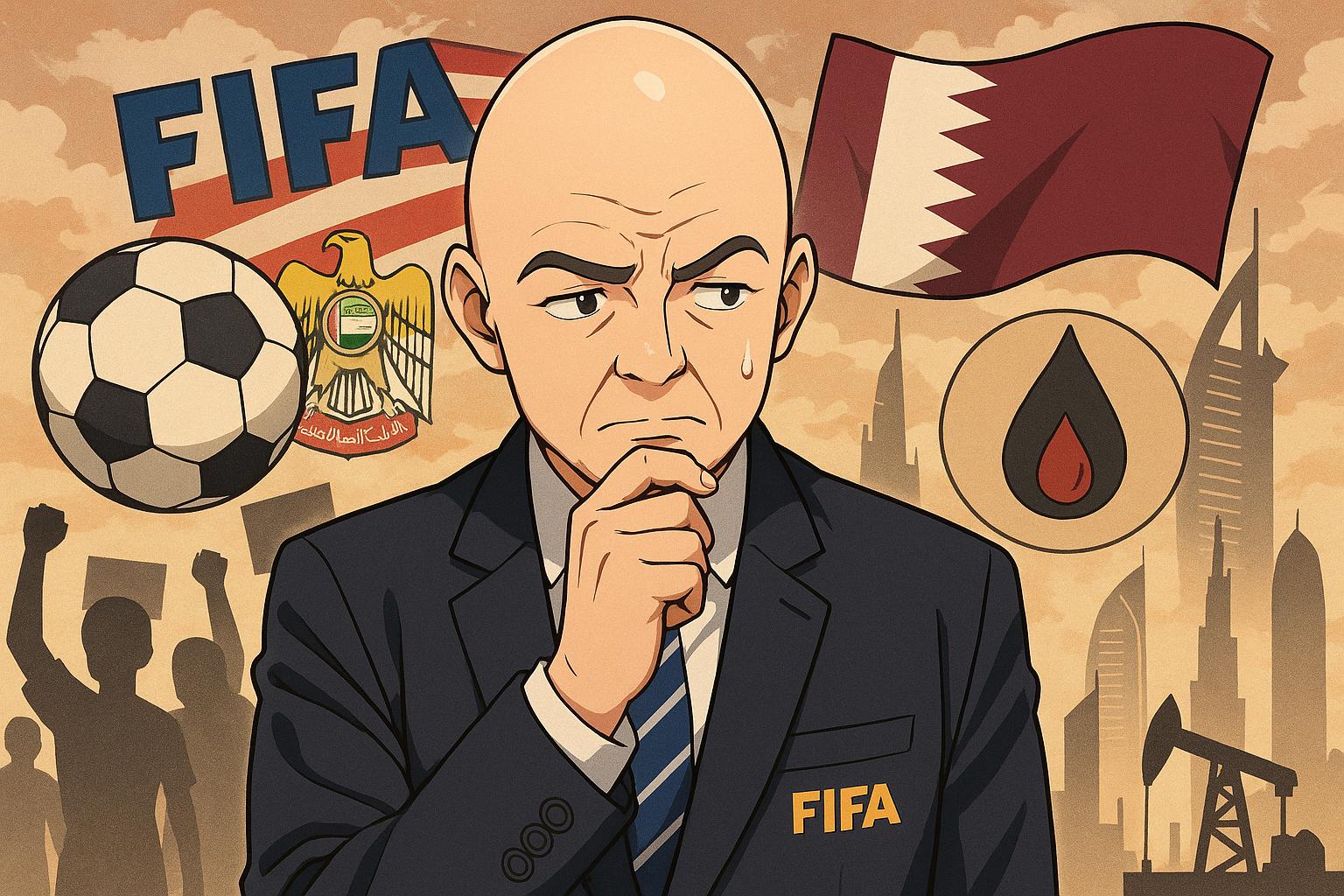Gianni Infantino, President of FIFA, is under scrutiny following his recent trip to the Gulf, where he accompanied U.S. President Donald Trump to Qatar and Saudi Arabia. This trip has prompted significant criticism from Human Rights Watch, which has called for the FIFA leader to clarify what this journey accomplished for both football and human rights. Minky Worden, the director of global initiatives at Human Rights Watch, has expressed concerns regarding FIFA's lack of meaningful accountability, emphasising that such trips can undermine the essential governance structures of the sport.
The timing of Infantino’s Gulf visit coincided with FIFA's annual congress held in Paraguay, where his late arrival sparked outrage among European delegates. Accusations arose that Infantino's priorities lay primarily with his “private political interests,” a sentiment echoed by the European football governing body, UEFA. The congress, where national associations traditionally gather to address important governance issues, experienced delays of over two hours due to Infantino's absence.
UEFA insiders expressed their discontent, with some labelling Infantino as having lost touch with the responsibilities of his role. Reports included colourful characterisations of his behaviour, comparing it to that of a “puppy” following Trump. This discontent raises questions about Infantino's future leadership, particularly with the next FIFA elections set for 2027. While some insiders believe this behaviour jeopardises his chances of re-election, Infantino still appears to maintain significant global support for his presidency.
The scenario at the congress revealed tensions not only related to Infantino's travel choices but also connected to broader issues of governance within FIFA. Delegates from various confederations were left frustrated, highlighting a growing dissatisfaction with how FIFA operates under Infantino's leadership.
In contrast, Concacaf's Victor Montagliani defended Infantino, suggesting that walking out in protest was counterproductive. Nevertheless, FIFA must navigate emerging divides among its constituents, particularly in light of increasing scrutiny over human rights issues related to its events. The upcoming FIFA meeting in Miami, which coincides with the anticipated Club World Cup, may prove to be another pivotal moment for discussions surrounding governance reform.
Despite the uproar, Infantino sought to justify his absence, stating that representing football and making crucial decisions were his primary responsibilities. He maintained that his meetings in the Gulf were vital and that they served the interests of the organisation. However, the recurring calls for accountability suggest a disconnect between FIFA’s mandate and its current practices, raising the stakes for leaders like Infantino, who find their decisions increasingly subject to public and international scrutiny.
Furthermore, FIFA's relationship with Saudi Arabia, particularly following the kingdom being awarded the hosting rights for the 2034 World Cup, underscores the growing influence of financial considerations in global football governance. Despite Saudi Arabia's questionable human rights record, the financial support from the region, combined with Infantino's frequent collaborations, has led to a perception that FIFA's ethical stance may be wavering under the weight of lucrative partnerships.
The ongoing issues beg the question of how FIFA can improve its governance and regain the trust of its constituents, ensuring that the sport remains fair and equitable at all levels. As the pressure mounts, Infantino's ability to balance these challenges with the ambitions of FIFA will be crucial in charting a path forward in the complex world of international football.
Reference Map
- Paragraph 1: (1), (2)
- Paragraph 2: (1), (3), (4)
- Paragraph 3: (1), (2), (3)
- Paragraph 4: (1), (3)
- Paragraph 5: (1), (5), (6)
- Paragraph 6: (1), (7)
- Paragraph 7: (1), (7)
- Paragraph 8: (1), (3), (7)
Source: Noah Wire Services
